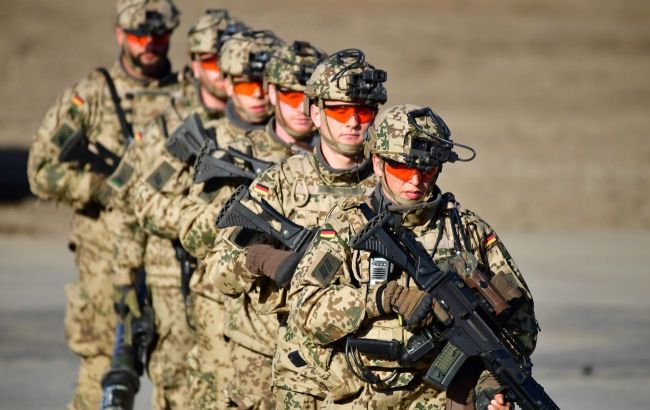Bundeswehr sends brigade to Lithuania to bolster NATO's eastern flank
 Illustrative photo (Getty Images)
Illustrative photo (Getty Images)
The Bundeswehr command is deployed to prepare for the deployment of a German brigade in Lithuania. The brigade is to strengthen NATO's eastern flank, according to the ZDF.
The agency notes that by transferring the previous command to Lithuania, the Bundeswehr is taking another important step towards the permanent deployment of a combat brigade on NATO's eastern border.
German Defense Minister Boris Pistorius intends to send about 20 soldiers to the mission. They will also create conditions for the deployment of additional soldiers.
Due to the changing security situation in Europe, the German government has committed to sending a combat-ready, self-sufficient combat unit to Lithuania. According to the schedule, the brigade should be operational by 2027. It is planned to have a permanent presence of about 4,800 soldiers and about 200 civilian Bundeswehr employees who can bring their families with them.
According to the German Ministry of Defense, the preliminary command is going to Lithuania together with the Chief of Staff of the Army, Lieutenant General Alfons Meiss.
By the fourth quarter of 2024, the provisional command is expected to grow to about 150 people. The army brigade will be reorganized in Lithuania under the name Panzerbrigade 45. After the brigade is officially commissioned in 2025, the deployment of other forces will begin in the same year, if the necessary infrastructure is created in Lithuania.
NATO is preparing for escalation
Earlier, the German newspaper Bild published a scenario of German military exercises, during which the armed forces are preparing for a hybrid attack by Russia on NATO's eastern flank.
In particular, Admiral Rob Bauer, Chairman of the NATO Military Committee, said that the alliance needs to be transformed, and the West must prepare for an era in which anything can happen at any time, including the outbreak of war.
French President Emmanuel Macron also spoke about the risk of an attack by Russia in the coming years. According to him, European leaders should be prepared for such a scenario.

